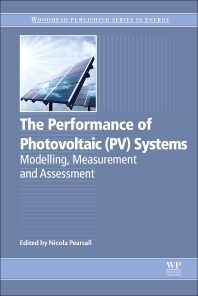Books in Energy and power
Books in Energy and power
Elsevier’s Energy and Power Collection offers the latest innovations in the energy transition with a focus on content that supports and advances the reduction of CO2 emissions. The collection includes content on solar, wind, geothermal, nuclear, biofuels and bioenergy, hydrogen and fuel cells, and addresses topics such as energy storage, efficiency, management, economics, and policy, among others.

Advances in Bioenergy
- 1st Edition
- Volume 1
- English

Short-Wavelength Magnetic Recording
- 1st Edition
- J.J.M. Ruigrok
- English

Nuclear Facilities
- 1st Edition
- Bill Collum
- English

Solar Heating and Cooling Systems
- 1st Edition
- Ioan Sarbu + 1 more
- English

Petroleum Waste Treatment and Pollution Control
- 1st Edition
- Shahryar Jafarinejad
- English

The Performance of Photovoltaic (PV) Systems
- 1st Edition
- Nicola Pearsall
- English

Nuclear Power
- 1st Edition
- Paul Breeze
- English

Energy Autonomy of Batteryless and Wireless Embedded Systems
- 1st Edition
- Jean-Marie Dilhac + 1 more
- English

Microgrid
- 1st Edition
- Magdi S. Mahmoud
- English

Quantitative Methods in Reservoir Engineering
- 2nd Edition
- Wilson C Chin
- English